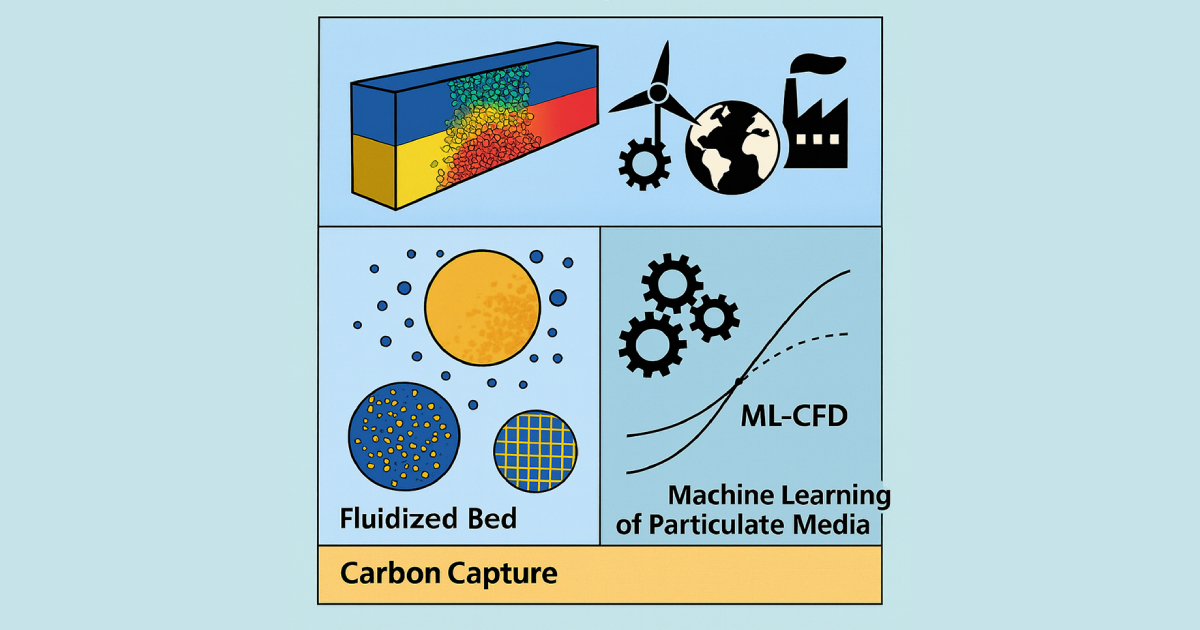- 2.8Impact Factor
- 5.5CiteScore
- 15 daysTime to First Decision
Innovative Computational Approaches for Complex Multiphase Flow in Energy, Environment and Manufacturing
This special issue belongs to the section “Particle Processes“.
Special Issue Information
Dear Colleagues,
At present, the accurate prediction and optimization of complex multiphase flows—spanning gas–solid, liquid–solid, gas–liquid, and reactive systems—are critical to advancing energy, environmental, and manufacturing processes. These flows underpin technologies ranging from fluidized beds in bioenergy production and carbon capture systems to particle transport in mineral processing, advanced manufacturing, and large-scale chemical reactors. Over the last decade, advances in computational fluid dynamics (CFD), the discrete element method (DEM), lattice Boltzmann method (LBM), and hybrid machine learning–CFD approaches have opened new frontiers for simulating, understanding, and scaling multiphase processes. When integrated with rigorous experimental validation, these tools provide unprecedented opportunities for process intensification, improved scale-up, and enhanced predictive capabilities across a broad spectrum of industrial applications.
This Special Issue aims to showcase state-of-the-art computational strategies and modeling frameworks for tackling the challenges of complex multiphase flows, with an emphasis on innovations that bridge fundamental research and real industrial implementation. We invite contributions that advance numerical methods, propose novel hybrid modeling approaches, or demonstrate transformative applications in energy systems, environmental technologies, and manufacturing processes. Studies integrating high-fidelity simulations with experimental measurements, or coupling process models with optimization, scale-up, and techno-economic analyses, are particularly encouraged.
Topics of interest for publication include, but are not limited to, the following:
- Multiphase flow modeling in reactive systems, including bioenergy and carbon capture processes.
- Simulation of fluidized beds, spouted beds, and particulate transport systems.
- Computational frameworks using CFD, DEM, LBM, or hybrid ML–CFD approaches.
- Modeling of multiphase systems in mineral processing and advanced manufacturing.
- Process intensification and scale-up of multiphase reactors.
- Coupled experimental–numerical approaches for model validation.
- Novel algorithms and software tools for multiphase flow simulation.
- Integration of multiphase flow models into process design, control, and optimization.
- Life cycle assessment of clean energy systems.
We look forward to your contributions to this Special Issue, which aims to advance both the theory and practical application of computational multiphase flow modeling.
Dr. Adefarati Oloruntoba
Prof. Dr. Yongmin Zhang
Dr. Hongliang Xiao
Guest Editors
Manuscript Submission Information
Manuscripts should be submitted online at www.mdpi.com by registering and logging in to this website. Once you are registered, click here to go to the submission form. Manuscripts can be submitted until the deadline. All submissions that pass pre-check are peer-reviewed. Accepted papers will be published continuously in the journal (as soon as accepted) and will be listed together on the special issue website. Research articles, review articles as well as short communications are invited. For planned papers, a title and short abstract (about 250 words) can be sent to the Editorial Office for assessment.
Submitted manuscripts should not have been published previously, nor be under consideration for publication elsewhere (except conference proceedings papers). All manuscripts are thoroughly refereed through a single-blind peer-review process. A guide for authors and other relevant information for submission of manuscripts is available on the Instructions for Authors page. Processes is an international peer-reviewed open access semimonthly journal published by MDPI.
Please visit the Instructions for Authors page before submitting a manuscript. The Article Processing Charge (APC) for publication in this open access journal is 2400 CHF (Swiss Francs). Submitted papers should be well formatted and use good English. Authors may use MDPI's English editing service prior to publication or during author revisions.
Keywords
- reactive flows
- fluidized beds
- bioenergy
- carbon capture
- mineral processing
- advanced manufacturing
- machine learning–CFD hybrid models
- computational frameworks
- LCA
- CFD
- process intensification
- scale-up
- validation with experiments

Benefits of Publishing in a Special Issue
- Ease of navigation: Grouping papers by topic helps scholars navigate broad scope journals more efficiently.
- Greater discoverability: Special Issues support the reach and impact of scientific research. Articles in Special Issues are more discoverable and cited more frequently.
- Expansion of research network: Special Issues facilitate connections among authors, fostering scientific collaborations.
- External promotion: Articles in Special Issues are often promoted through the journal's social media, increasing their visibility.
- e-Book format: Special Issues with more than 10 articles can be published as dedicated e-books, ensuring wide and rapid dissemination.

